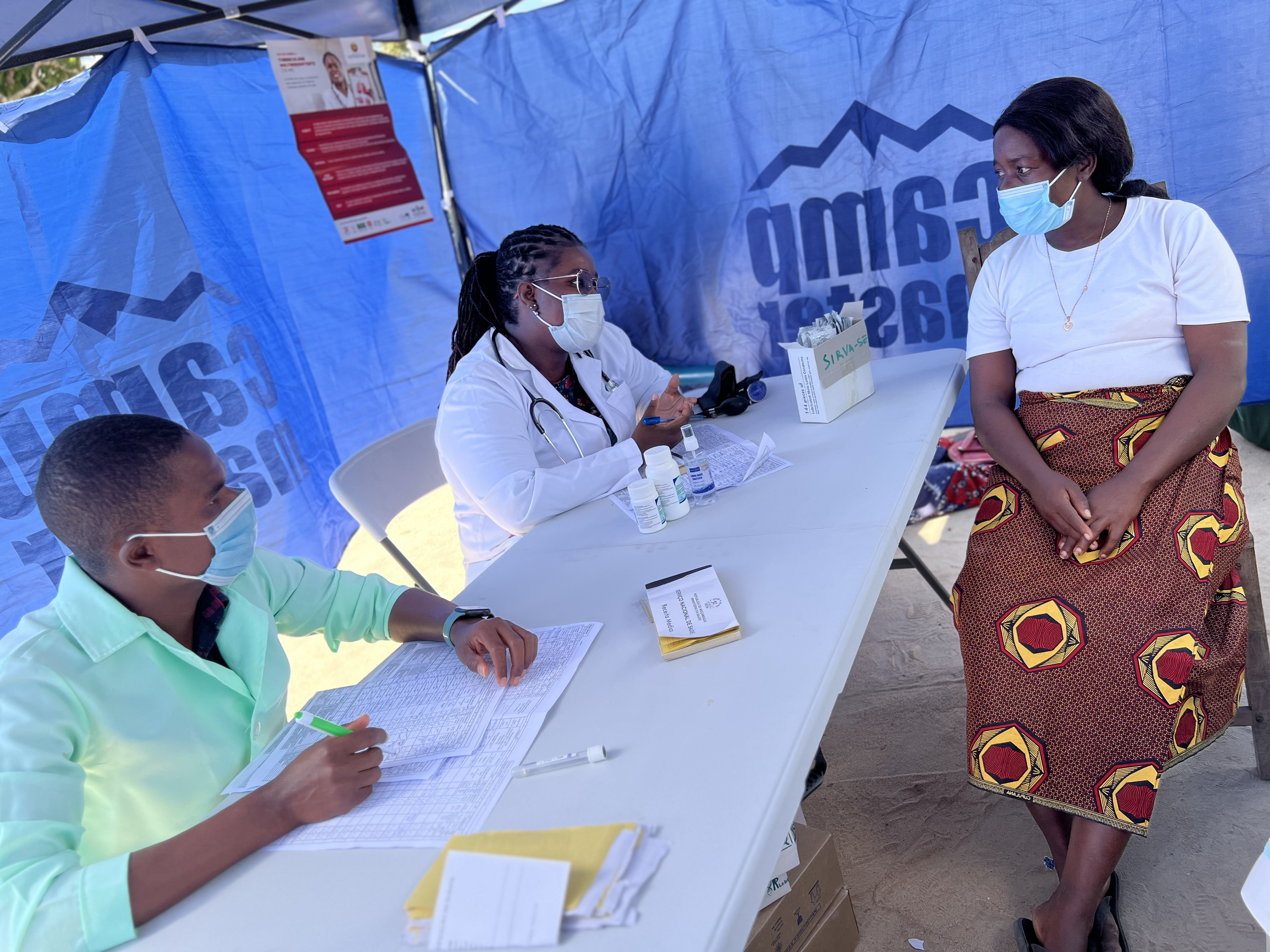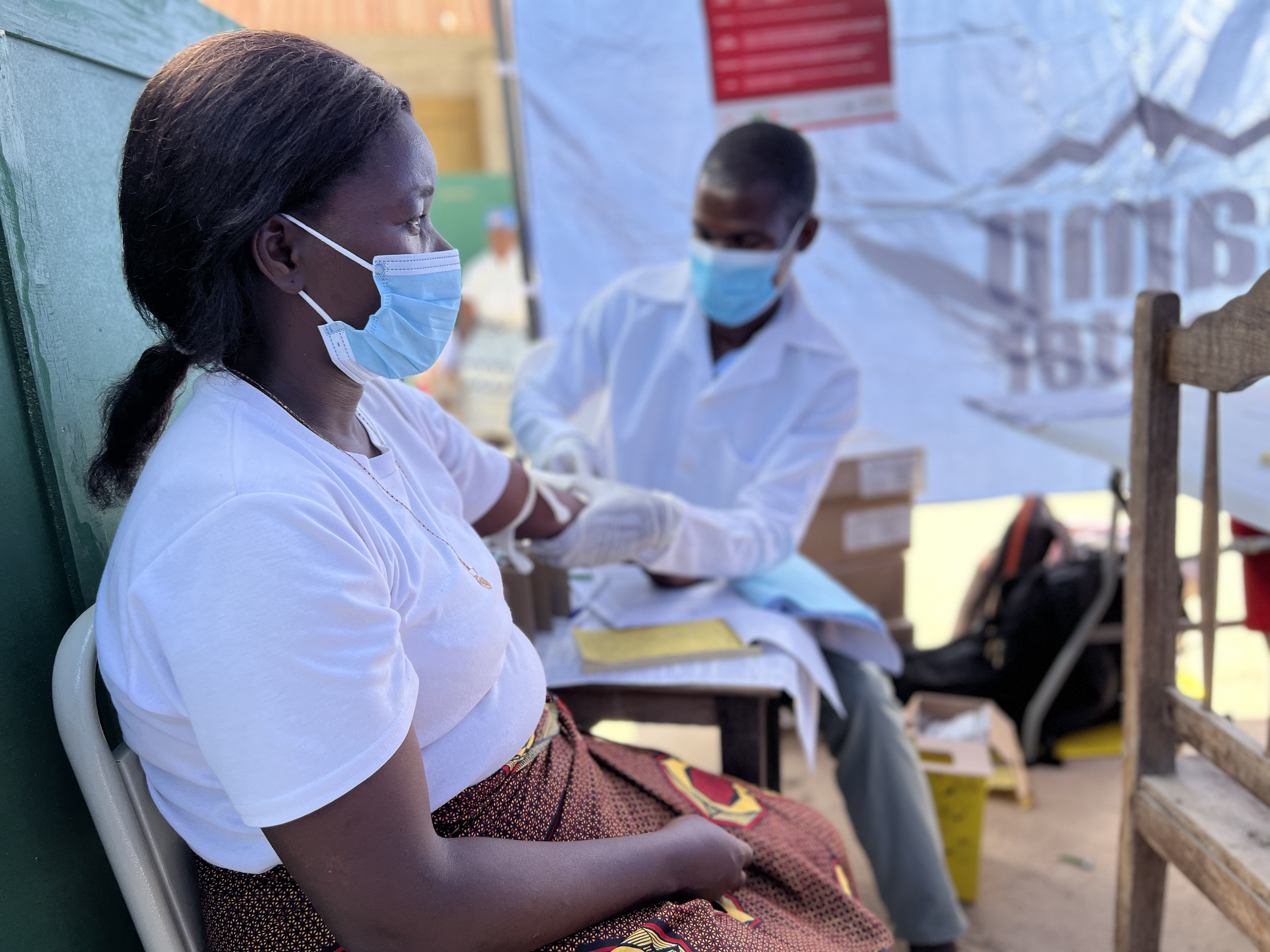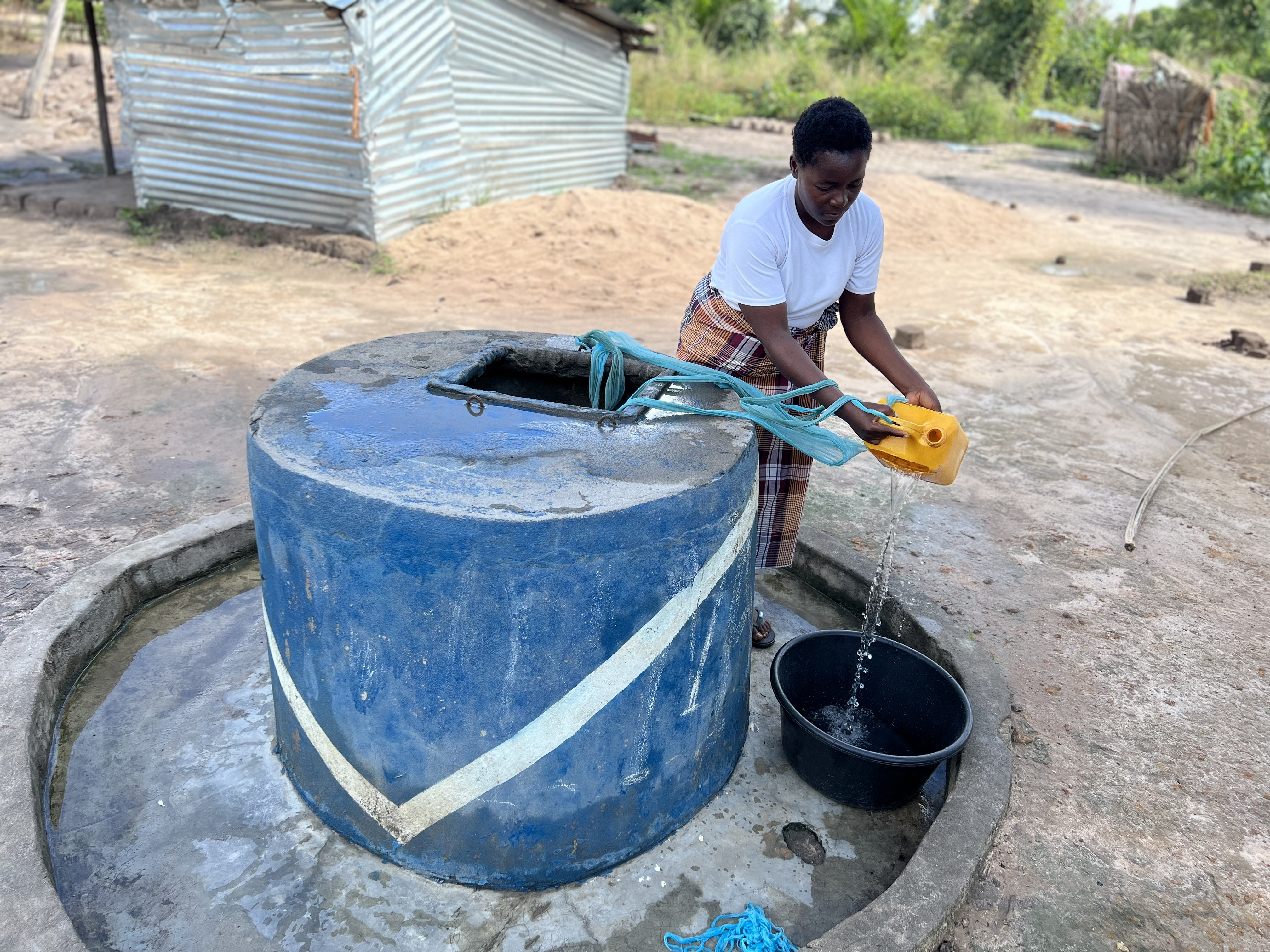“Because of antiretroviral treatment, I'm still alive and able to take care of my children. I want to advise everyone in HIV care and treatment to follow the recommendations of their healthcare providers.” Amélia Francisco, Namacurra District.
Amélia Francisco is a thirty-six-year-old single mother of four living in Namugule, Namacurra District. She has been on antiretroviral therapy (ART) since 2013. Amelia's first child is nineteen years old and also on ART. Her younger three children, ages fifteen, eleven, and eight, are all HIV-negative. She told us, “Fortunately, the other three children tested negative for HIV because when they were born, I was already on ART, and during the pregnancy I decided to be adherent, to never abandon my prenatal care and HIV consultations.”
On March 11, 2023, Amélia’s life, along with the lives of over 200,000 other people in Zambézia Province, was severely affected by the landfall of tropical Cyclone Freddy. With winds reaching 148 kilometers per hour and heavy rainfall of up to 300 milliliters within 24 hours, the cyclone left a trail of destruction in its wake. Essential infrastructure such as roofs, roads, electricity, and telecommunication networks suffered severe damage.

The health facility where Amélia received services was among many that were severely affected by the cyclone. The roof was damaged and maternity care and HIV services were temporarily suspended.
Amélia’s house in Namugule was destroyed by the cyclone, forcing her family to temporarily relocate to a different neighborhood in Mucucunho. Amélia focused her efforts on rebuilding her house, ensuring that her children have a place they can call home. The rebuilding period was challenging and Amélia had to make many sacrifices. As for many people dislocated by the cyclone, Amélia did not have the time or transportation to seek healthcare. She missed her routine appointment at the health facility and ran out of her ART. Amélia’s treatment was interrupted for two months.
The emergency caused by Cyclone Freddy resulted in the highest level of treatment interruption in a single month in more than five years at FGH supported health facilities. Amélia was just one of the 25,175 patients in Zambézia Province who experienced treatment interruptions in April 2023, representing 7% of the total number of patients currently receiving ART. But FGH and local health authorities worked quickly to address the challenges faced by patients and by the end of June, the number of patients active on ART had increased to 361,352, returning to the pre-cyclone levels. While Amélia was still working to rebuild her house, she heard about an FGH ART reintegration campaign taking place in the Dualia neighborhood, near her temporary housing in Mucucunho. Amélia attended a health fair organized as part of the reintegration campaign. There, she received a clinical consultation, viral load testing, and a supply of her ART.
Amélia told us about the value she sees in health fairs conducted in the community, “They are very important and beneficial for us because many people have difficulties reaching the health facilities. We live very far from the health facility and sometimes we need to pay for transportation, and we don’t have money for that. The fair also helps those who missed the opportunity to pick up their ARVs. They have an opportunity to return to care. That’s what happened to me.”

Work to repair the damaged roof of Amélia’s local health facility was initiated with support from Friends in Global Health (FGH). In neighboring Quelimane District, repair work has already been completed. Francisco Américo, the Director of the 17 de Setembro Health Facility in Quelimane told us,
“Thanks to the efforts made by FGH, it was possible to replace the roof of various buildings of the health facility destroyed during Cyclone Freddy, which allowed the resumption of services that had been suspended.”
To respond to the emergency caused by Cyclone Freddy, FGH supplemented PEPFAR funding with funding from the Embassy of Switzerland in Mozambique, and Millennium BIM bank, enabling roof repairs at 41 supported health facilities and allowing the resumption of services that had been temporarily suspended.
FGH supports provincial health authorities to provide HIV and TB services at 149 health facilities in Zambézia Province with PEPFAR funding through the Centers for Disease Control and Prevention (CDC).

In response to Cyclone Freddy, patient reintegration campaigns were activated, complementing home visits and community ART distribution by healthcare providers. These campaigns utilized lists of patients meeting treatment interruption criteria, organized by neighborhood. Invitations were delivered to patient homes by FGH community healthcare workers, while community leaders were engaged to ensure widespread participation. The campaigns provided comprehensive services, including clinical consultations, viral load testing, psychosocial support, ART dispensation, prophylactic treatment (such as TB preventive therapy), and youth-friendly services. Improved infrastructure and community outreach activities significantly contributed to the restoration of health services in Zambézia Province.
The emergency caused by the cyclone had a significant negative impact, but the rapid response provided by FGH and local health authorities enabled the reintegration of individuals to ART services and allowed efforts to control the HIV epidemic in Zambézia Province to return to normal as quickly as possible.